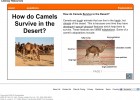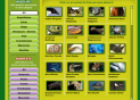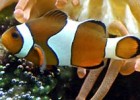Cargando...
Recursos educativos
-
Nivel educativo
-
Competencias
-
Tipología
-
Idioma
-
Tipo de medio
-
Tipo de actividad
-
Destinatarios
-
Tipo de audiencia
-
Creador
Lo más buscado
- Rinoceronte
- Aprender a restar
- Lagos de Asia
- Matemáticas divertidas
- Acento palabras llanas
- Centenas de millar
- Cultivos transgénicos
- Derechos de la infancia
- Guía del mundo
- Relieve de Asia
- Ejercicios escolares para niños de 7 años
- Actividades de geometría
- Herramientas para física
- Lecturas para imprimir
- Experimentos para casa
-

Complete. Risks from earthquakes
EduBook Organización
- 2333 visitas
Complete the sentences: Earthquake regions generally coincide with.... Side effects of earthquakes include.... Earthquakes cause more damage where.... One sign that there will be an earthquake is when…
-

Check. The growth of industry
EduBook Organización
- 2311 visitas
Remember what you have studied in this section and answer the questions: What improvements took place in traditional forms of land and water transport? What innovations make these dates significant:…
-

How do camels survive in the desert?
Tiching explorer Organización
- 3809 visitas
This lesson presents the special physical features camels have developed to adapt to the desert: how they store water and fat, their thick fur, long eyelashes and long legs... We can learn some…
-

-

Introduction - The nervous system
EduBook Organización
- 2255 visitas
Right now, you are reading these words and you understand them. If you see food when you are hungry, your mouth starts to water. If you burn your hand, you move it away immediately. You automatically do…
-

Unit 6: The natural environment. Ecosystems
EduBook Organización
- 2263 visitas
Abiotic (adj): relating to the environment, not living things. aquatic (adj): relating to water. biome (n): a large area of the Earth which has similar plant and animal populations. biosphere (n): the…
-

Wildlife and habitats
Tiching explorer Organización
- 1 lo usan
- 4225 visitas
In this website we find out about animals (amphibians, birds, bugs, dinosaurs, fish, invertebrates, mammals, reptiles) and habitats (antarctic, artic, forest, water, grassland, mountain). There are…
-

Ocean acid may make fish deaf
BBC Organización
- 1 lo usan
- 2850 visitas
In this article we find out that scientists in the UK have published a report suggesting acidic sea water could be turning fish deaf. It is available in PDF file and we can listen to the podcast while…
-

Match. Groups of vertebrates
EduBook Organización
- 2236 visitas
Match each group of vertebrates with its main characteristic: Their body is covered in feathers. ➝ Their body is covered in fur and they give birth to live young. ➝ They spend part of their lives in…
-

Plant nutrition
EduBook Organización
- 2227 visitas
Photosynthesis Plants and animals both feed on organic matter. However, plants are different to animals because they make their own organic matter and turn it into food. They do this through a process…
Te estamos redirigiendo a la ficha del libro...













